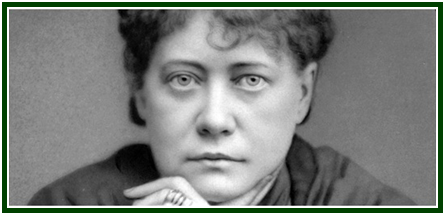A Correct Application of the
Planned Means of Implementation

00000000000000000000000000000000000000000000000000000
In the first sentence of the article, coup de main is a technical
phrase meaning a surprise military attack, unleashed with various
simultaneous actions of support. A swift attack that uses speed
and surprise to accomplish its objectives in a single blow.
(CCA)
00000000000000000000000000000000000000000000000000000000
“The man of strong will is not the one who offers to plan the coup de main, it is the one who steps forward to do it.” Through this belligerent image, Charles Blondel clearly shows us the importance of that phase of a volition which is the taking of action.
In fact, everything that precedes the action can be nothing but dreams, ruminations, desires, projects, resolutions, a play of abstract elements, a brainstorm, the agitations of a mind which struggles with itself far from reality, producing no practical effects. Oh, how vast and populated is the cemetery where, in each of us - in the depths of our own souls - stillborn acts of will sleep forever!
Beware of getting used to these funerals. Such a funereal work scarcely prepares one to live a good life. And above all, we get a taste for it. A horrible laziness then encourages every project to be gently pushed into oblivion. “What’s the point!” we repeat with a tired voice. The gloomy indifference of a gravedigger, who is only interested in coffins!
As soon as you have built the project of an act of will - unless you have deliberately sketched it out as a short preliminary experiment - make sure you take action.
No procrastination! Once your decision has been made and matured by reflection, you must implement it. Resist the desire to endlessly check and test. You proclaimed that it was good, helpful and right to act in a certain way. Put your stamp on this resolution, by actually taking action.
In order to obtain this freedom of voluntary impulse, a good procedure consists of closing any process of deliberation with a supreme question which consists of asking yourself whether the decision you have just made is not distorted by some fanciful state of mind. This can be translated into a short monologue built on this diagram:
“Have I weighed everything, seen everything?” Yes, my decision takes the whole reality into account. “Isn’t this a comedy that I’m playing? Nor a simulacrum?” No, I am fully committed. I studied all the means that I must use in order to succeed. I am looking at the situation in a direct way. I have given due thought to all the consequences. I am sincere with myself. So, I am definitely going ahead!
From this moment, the mind gets concentrated in the correct application of the planned means of implementation. The muscles contract with the serenity of good, obedient assistants who perform their duty without worrying, since they are not responsible for the results. This of course depends on you keeping all your muscular organs in a vital state through physical exercises, the practice of sports, and the habit of working. In the implementation phase, the act of will largely depends on the supply of energy previously stored in the muscles and ready to explode. The individual then becomes more acutely aware of his total strength.
But it sometimes happens that the fulfillment of the decision does not have to occur until a later time. This is when we should not deceive ourselves. Until you take action, you cannot know whether you really want to act.
In order to preserve the dynamic force of your will, keep alive in your mind all the ideas whose presence led you to make the decision, and do not let any images opposite to that establish themselves in your consciousness.
This is tantamount to say that to take action it is necessary to keep the ideomotor states of consciousness ready to be triggered, in a sort of active latency, and inhibit those which would waste energy prematurely.
In this attitude, of course, there is a bit of that strong stubbornness of the “narrow-minded man” who refuses to examine a question twice. But it should be noted that it is individuals of this kind who most easily put ideas into action.
000

The article “Carrying Out the Decision” was published in the websites of the Independent Lodge of Theosophists on 16 August 2024. It was translated from the book «Dictionnaire de la Volonté», by Jean des Vignes Rouges, Éditions J. Oliven, Paris, 320 pp., 1945, pp. 131-132.
The original text in French is available on the websites of the ILT: “Exécution de la Décision”. The text is also part of the July 2024 edition of “The Aquarian Theosophist”. Translation into English: CCA.
000
Read more:

* How to Strengthen One’s Will (by HPB).
000

Helena Blavatsky (photo) wrote these words: “Deserve, then desire”.
000
